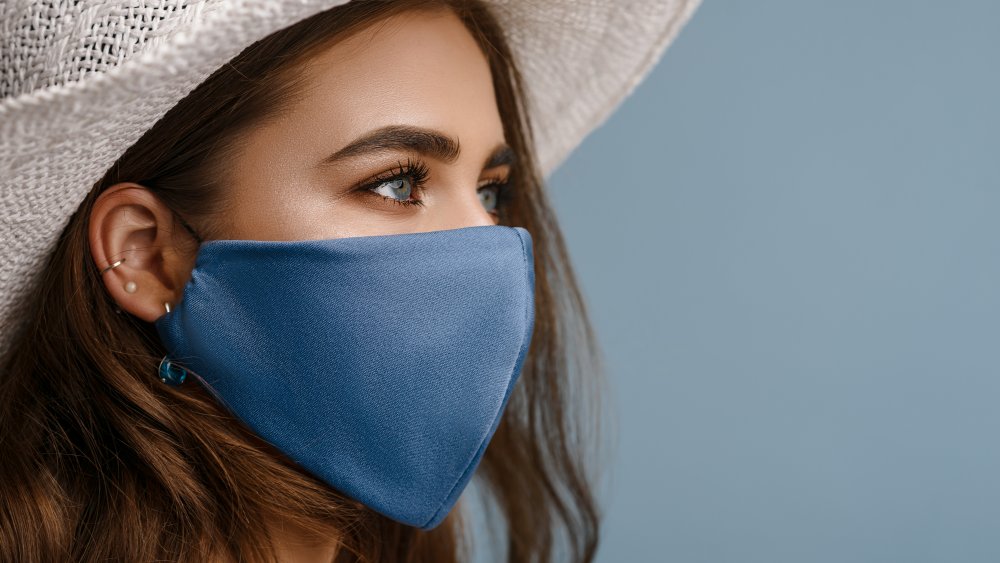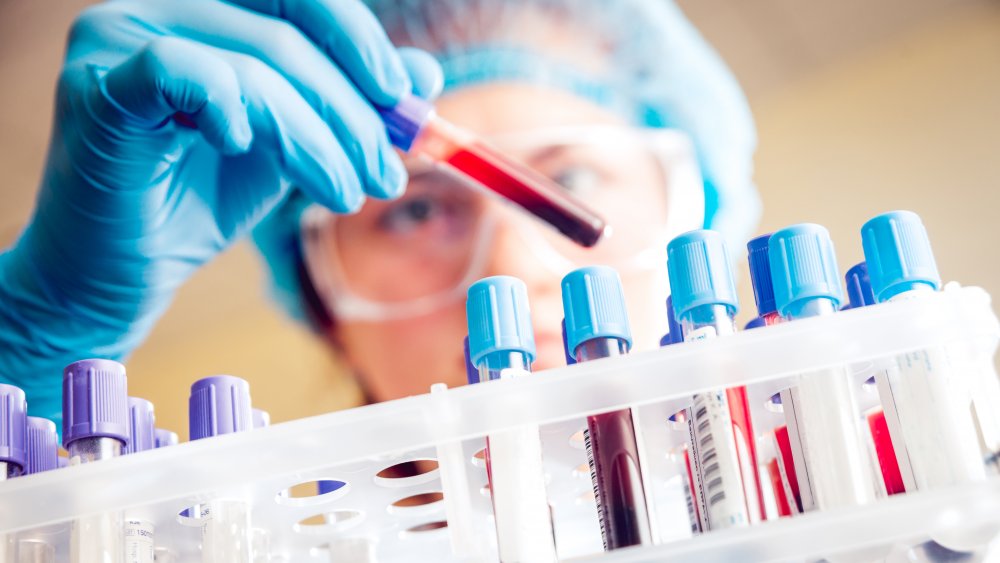Why Your Blood Type Might Be A Major Factor For COVID-19 Infection
Ever since the pandemic kind of took over not only our news feeds but our everyday existence, one question that everyone has been asking themselves is, "Am I going to get it?" At first, the pandemic seemed to target primarily older people, so everyone under 70 breathed a sigh of relief on their own behalf before they started worrying about older friends and relatives. As the months wore on and the death toll continued to grow, it became apparent that age alone was no "Get Out of the Hospital Free" card, as even infants were known to contract the virus, though likely not in utero (via Mayo Clinic).
While it seems that older and immune-compromised people are still at higher risk of serious complications, as is the case with so many health conditions, people of all ages, ethnicities, and economic strata have succumbed, and doctors have been unable to say for sure whether anybody could be considered relatively risk-free.
Still, in the endless search for a treatment and cure, researchers tirelessly seek for any indicators that might shed more light on this disease, in the hopes that knowledge will give us the power to defeat it at last and reclaim some semblance of life as we once knew it. One of the factors that medical science is taking into account is blood type, and they may have discovered a connection, or at least a correlation, between your blood type and your likelihood of becoming infected with COVID.
Type O seems to be the most virus-resistant
A study performed by Danish scientists found 38.4 percent of 7,422 subjects that tested positive for COVID-19 had type O blood, whereas 44.4 percent had type A blood (via CNN). Among Denmark's population as a whole, 41.7 percent have type O blood and 42.4 percent have type A, so these numbers seem to show a possible connection between blood type and virus susceptibility.
Precisely what that link is, however, is still to be determined. Dr. Torben Barington, clinical professor at Odense University Hospital and the University of Southern Denmark and senior author of the study, says, "We do not know whether this is some kind of protection of group O, or whether it's some kind of vulnerability in the other blood groups."
A Canadian study of 95 COVID patients found that 84 percent of those with type A or AB blood required mechanical ventilation while only 61 percent of those with O or B blood did. The A and AB blood types also had longer hospital stays, averaging 13.5 days as opposed to 9 days for Os and Bs. A study carried out by Harvard Medical School researchers, however, found no correlation between blood type and severity of symptoms, although their findings confirmed that type O blood patients were less likely to test positive for the disease.
So what does this mean for us? No idea, but it's good to know science is still trying to figure things out before too many more lives are lost.


